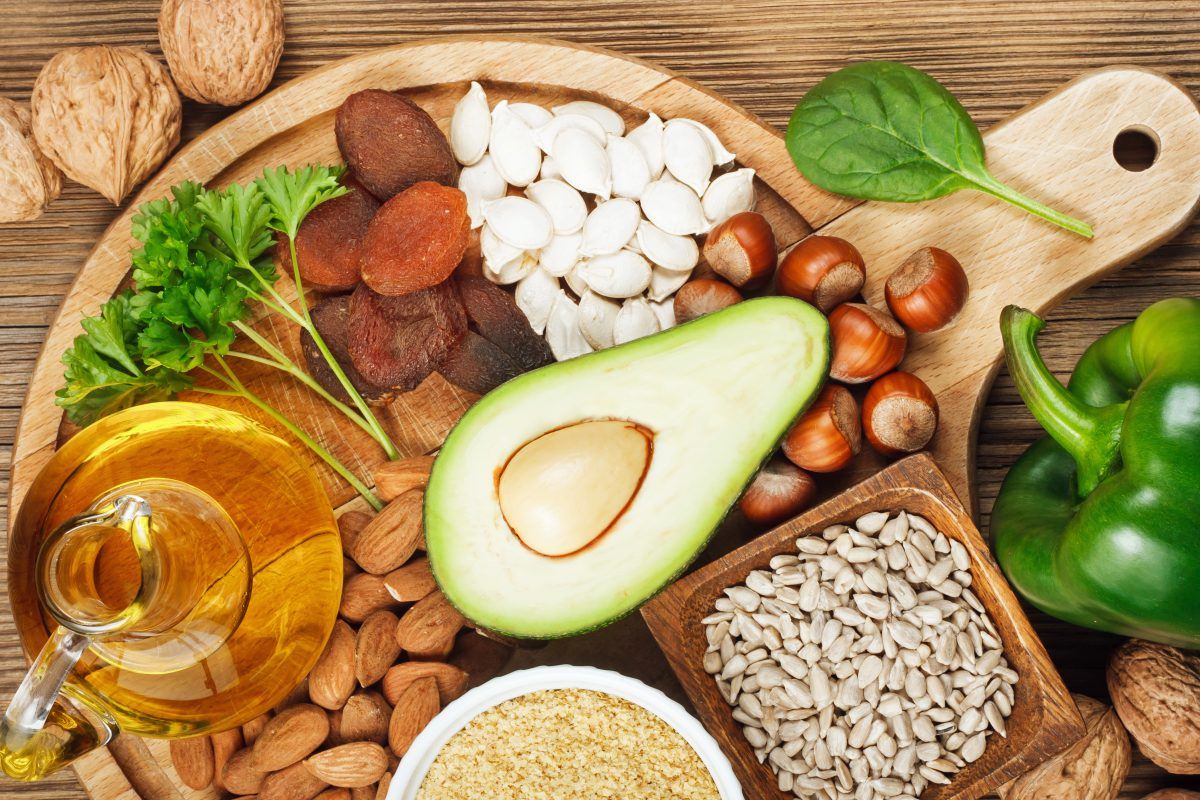Health Benefits of Vitamin E
What are the health benefits of vitamin E?
Vitamin E is a fat-soluble vitamin with antioxidant properties, meaning it helps protect cells from damage caused by free radicals. Here are some key health benefits associated with vitamin E:
- Antioxidant properties: Vitamin E is a powerful antioxidant that helps protect cells from damage caused by free radicals, which are unstable molecules that can contribute to aging and the development of chronic diseases.
- Immune function: Vitamin E plays a role in supporting immune function, helping the body fight off infections and diseases.
- Skin health: Vitamin E is often used in skincare products for its moisturizing and healing properties. It may help reduce the appearance of scars and promote skin healing.
- Heart health: Some studies suggest that vitamin E may help reduce the risk of heart disease by preventing the oxidation of LDL cholesterol (often referred to as “bad” cholesterol), which can lead to plaque buildup in arteries.
- Brain health: Vitamin E may play a role in maintaining cognitive function and reducing the risk of Alzheimer’s disease and other neurodegenerative diseases such as Parkinson’s disease.
- Eye health: Vitamin E may help protect the eyes from age-related macular degeneration (AMD) and cataracts, two common causes of vision loss in older adults.
- Anti-inflammatory effects: Vitamin E has been shown to have anti-inflammatory effects, which may help reduce inflammation in the body and alleviate symptoms of conditions such as arthritis.
- Menstrual pain relief: Some studies suggest that vitamin E may help reduce menstrual pain when taken as a supplement.
It’s important to note that while vitamin E has many potential health benefits, taking high doses of vitamin E supplements can lead to health risks, including an increased risk of bleeding and hemorrhagic stroke. The recommended dietary allowance (RDA) for vitamin E is 15 mg (22.4 IU) per day for adults. It’s generally best to get vitamin E from a balanced diet that includes sources such as nuts, seeds, vegetable oils, and green leafy vegetables, rather than from supplements, unless advised otherwise by a healthcare provider.
What are the health risks of vitamin E?
While vitamin E is generally considered safe when consumed in recommended amounts from food sources, high doses of vitamin E supplements can lead to health risks. Some potential risks associated with high levels of vitamin E include:
- Increased risk of bleeding: Vitamin E can act as a blood thinner, which can increase the risk of bleeding, especially in individuals taking anticoagulant medications such as warfarin (Coumadin) or aspirin.
- Increased risk of hemorrhagic stroke: Some studies have suggested that high doses of vitamin E supplements may be associated with an increased risk of hemorrhagic stroke, especially in individuals with a history of cardiovascular disease.
- Gastrointestinal issues: High doses of vitamin E supplements can cause digestive issues such as nausea, diarrhea, and stomach cramps.
- Increased risk of prostate cancer: Some studies have suggested that high doses of vitamin E supplements may be associated with an increased risk of prostate cancer, although more research is needed to confirm this association.
- Interference with medications: Vitamin E supplements can interact with certain medications, including anticoagulants and chemotherapy drugs, which can affect their effectiveness.
- Hypervitaminosis E: Excessive intake of vitamin E supplements can lead to hypervitaminosis E, which can cause symptoms such as fatigue, weakness, and blurred vision.
It’s important to consume vitamin E within the recommended daily intake levels to avoid these risks. The recommended dietary allowance (RDA) for vitamin E is 15 mg (22.4 IU) per day for adults. It’s generally best to get vitamin E from a balanced diet that includes sources such as nuts, seeds, vegetable oils, and green leafy vegetables, rather than from supplements, unless advised otherwise by a healthcare provider.
What foods are rich in vitamin E?
Vitamin E is found in a variety of foods, particularly in plant-based oils, nuts, seeds, and green leafy vegetables. Here are some foods that are rich in vitamin E:
- Vegetable Oils: Sunflower oil, safflower oil, wheat germ oil, and soybean oil are all high in vitamin E.
- Nuts and Seeds: Almonds, hazelnuts, sunflower seeds, and peanuts are good sources of vitamin E.
- Green Leafy Vegetables: Spinach, kale, and Swiss chard are rich in vitamin E.
- Avocado: Avocado is a good source of vitamin E.
- Fortified Foods: Some breakfast cereals and other foods are fortified with vitamin E.
- Shellfish: Shrimp, lobster, and crab contain small amounts of vitamin E.
- Fruits: Some fruits, such as mango, kiwi, and blackberries, contain vitamin E.
Including these foods in your diet can help ensure an adequate intake of vitamin E.




